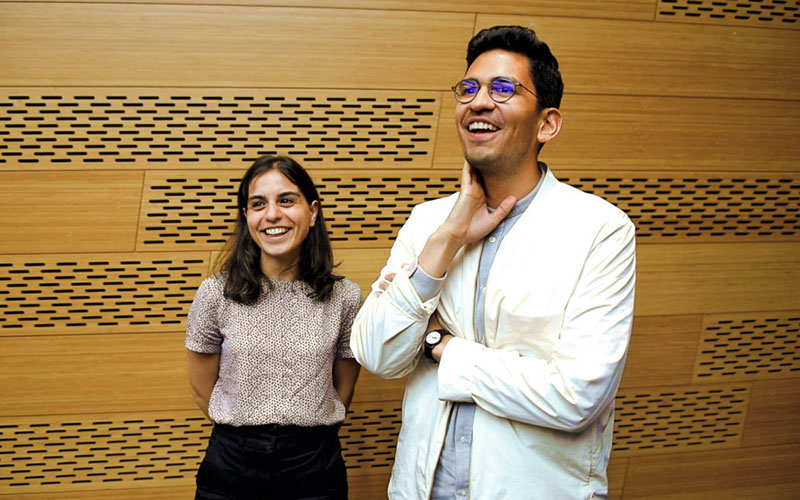About
Cadaster is a design practice focused on the infrastructures of architecture and territory. Our work responds to the pervasive structures that govern environments. Through practice, teaching, research, and advocacy, we are currently pursuing several design trajectories, including intervening in urbanization, the rescripting of real property, preservation justice, contemporary environmentalities, and infrastructures of cooperation. Together, these frame our commitment to defining and advancing architecture’s role in struggles for spatial justice.
Intervening in Urbanization
Suspending urbanization through anticipatory and spatially pervasive design processes.
Rescripting Real Property
Deploying property geometries and socio-legal arrangements for counter-hegemonic land claims.
Preservation Justice
Supporting collective aspirations through existing material fabrics.
Contemporary Environmentalities
Reorienting design’s terms of engagement to address the ecological asymmetries of the Anthropocene.
Infrastructures of Cooperation
Mediating collectivity and political transformation through spatial configurations.
Cadaster is based in Minneapolis.
Team
Athar Mufreh (she/her) is a designer, urbanist, and educator. She received a Bachelor of Architecture from Birzeit University (Ramallah, Palestine) and Master of Integrated Urbanism and Sustainable Design at Stuttgart University (Germany) and Ain Shams University (Egypt). Athar worked as a designer and researcher at the Storefront for Art and Architecture, the New York City Landmarks Preservation Commission, the United Nations Relief and Works Agency for Palestinian Refugees, Decolonizing Architecture Art Residency, and the Bethlehem Center for Cultural Heritage Preservation. In 2018-2019, she was a lecturer at the University of Michigan Taubman College of Architecture and Urban Planning. Athar is presently a lecturer at the University of Minnesota School of Architecture. Her current focus includes multi-generational housing, kinship relations mediated by ecology, and emerging modes of citizenship.
Gabriel Andrés Cuéllar (he/him/él) is a registered architect and educator. Gabriel completed studies in architecture and urban design at Carnegie-Mellon University (Pittsburgh) and the Berlage Institute (Rotterdam). He worked in the offices of Gramazio & Kohler (Zurich), Philippe Rahm (Paris), Anne Holtrop (Amsterdam), CDR Studio (New York City), and Enter Architecture (Houston). His writings have appeared in publications by Sternberg Press and Routledge. Gabriel has contributed to projects exhibited in the Canadian Centre for Architecture, the Netherlands Architecture Institute, the House of World Cultures, The New School Parsons School of Design, and the University of Michigan. Gabriel is a member of NOMA, The Architecture Lobby, and AIA. He was the Oberdick Fellow at the University of Michigan in 2018-2019, and is currently an Assistant Professor-in-Practice at the University of Minnesota School of Architecture. His current focus includes the spatial implications of real property, design approaches for contemporary environments, and architecture’s role in making land claims.

Recent collaborators
Clare Coburn, Edward Falkowski, Xiaohan Gu, Karun Chughasrani, Jakob Mahla, Reed Miller, Victoria See
Contact
We would love to hear from you, please contact us here.
Recent news
7 February 2022
Cadaster contribute to the University of Minnesota School of Architecture lecture series for Spring 2022. The talks are centered on the theme "existing to remain," a phrase scattered in the notes of construction plans denoting portions of a site or structure that both precede and proceed. The phrase manifests the ways spatial practitioners incorporate existing material fabrics — and their accompanying histories and contemporary potentials — into reframed and altered configurations.
2 December 2021
Gabriel joins The Architectural League Young Architects + Designers Committee with Tei Carpenter and Luis Beltrán Del Río García. See the League Prize 2022 Call for Entries centered on the theme “grounding.”
1 July 2021
Cadaster is invited to collaborate with 1+1+ in the Detroit Month of Design (September 1–30). Stay tuned for more info.
15 March 2021
Gabriel joins Beatriz Colomina, Aristide Antonas, and Sophie Hochhäusl in conversation for the latest issue of Paprika!, the Yale School of Architecture student journal. The issue is edited by Gustav Nielsen, Diana Smiljkovic, Jack Rusk, and Rachael Tsai.
8 March 2021
Cadaster organize the University of Minnesota’s annual Spring workshop, catalyst. Learn more here and tune into the lecture series Monday, March 8 and Tuesday, March 9.
27 November 2020
The Berlage Center for Advanced Studies in Architecture and Urban Design invites Gabriel to lecture on “The Architecture of Real Property” as part of the school’s “Architectures of Speculation” seminar series. Watch back the lecture here.
30 July 2020
Cadaster participates in a curricular workshop organized by The Temple Hoyne Buell Center for the Study of American Architecture for the “Green Reconstruction” research program.
10 February 2020
Columbia University’s Temple Hoyne Buell Center and the Association of Collegiate Schools of Architecture award Gabriel with the 2020 Course Development Prize in Architecture, Climate Change, and Society. Learn more and see the awarded syllabi here.
11 June 2019
The City of Quebec invites Cadaster to a design workshop for the Rêvons nos rivières project.
26 March 2019
Gabriel takes part in the Taubman College of Architecture and Urban Planning 2018–2019 fellows exhibition, “Things Around Us.”
21 June 2018
As part of the Architectural League Prize 2018 exhibition, Cadaster lecture at The New School’s Parsons School of Design. Watch back the lecture here.
Publications: